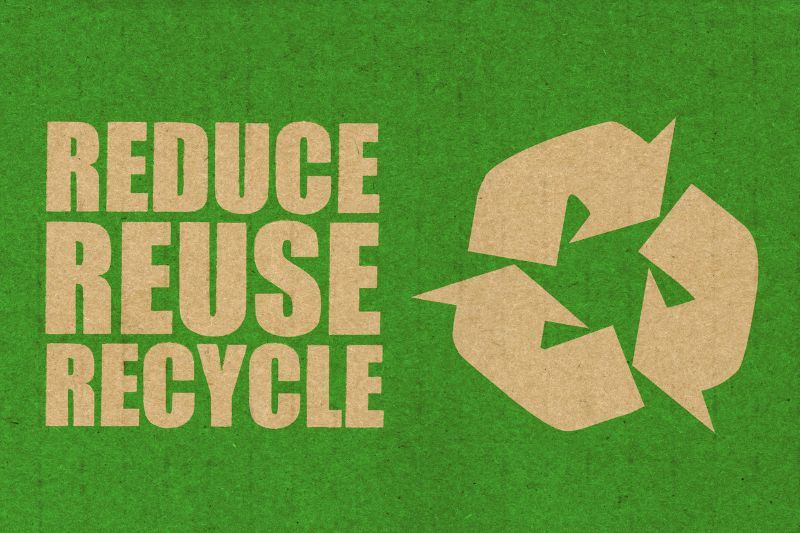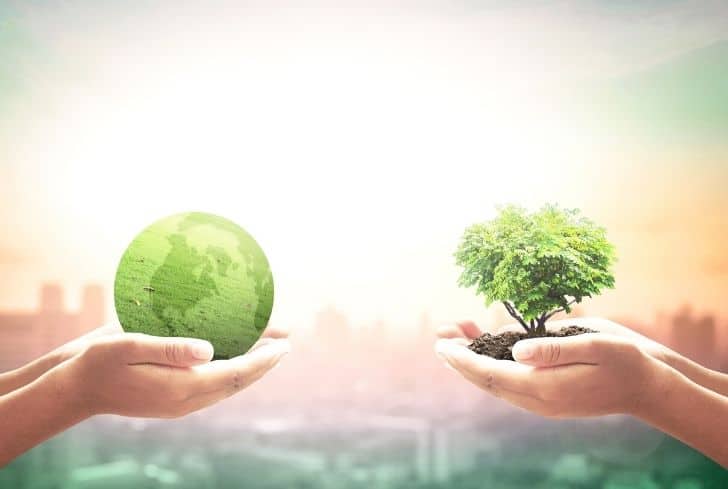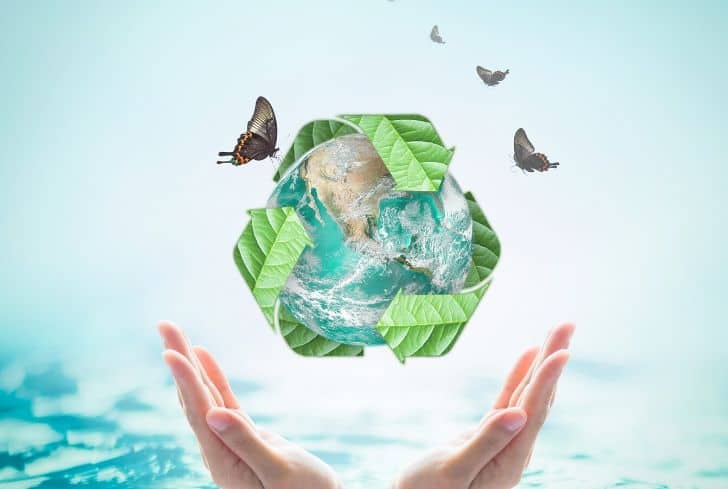Humans generate a lot of waste, which now affects the air we breathe, the water we drink, and the land on which we live.
According to the United Nations, about 11.2 billion tonnes of solid waste is collected worldwide, almost all of which comes from humans alone. As such, it’s really necessary to manage this waste using sustainable practices.
This article will talk about sustainable waste management, its importance, and said strategies for sustainable waste management.
What is Waste Management?
Waste management refers to the practice of collecting, transporting, and processing various waste materials. It can also be defined as the disposing of, managing, and monitoring of various waste materials.
Now, it is important to observe sustainability in this aspect so that every bit of waste can be managed efficiently rather than just dumping it in landfills.
What is Sustainable Waste Management?
Sustainable waste management refers to the collection, transportation, valorization, and disposal of the various types of waste, in a manner that does not jeopardize the environment, human health or future generations.
You can think of it as any activity involved in the organization of waste management, from production to the final treatment.
It is important to note that there are various types of waste. Some of the common ones include:
- Municipal: It includes household, commercial, and demolition waste.
- Electronic or e-waste: It entails computer parts.
- Radioactive waste: This includes radioactive elements.
The goal of sustainable waste management is to reduce the amount of natural resources consumed, reuse the materials taken from nature as much as it is possible, and create as minimal waste as possible.
It is our responsibility to develop sustainable waste management for the benefit of our environment and future generations.
A well-functioning sustainable waste management system should incorporate several things; feedback loops, focus on processes, embody adaptability, and divert wastes from disposal.
Sustainable waste management is a key concept of the circular economy and offers many opportunities and benefits to the economy, society, and environment.
Sustainable waste management involves collecting, sorting, treating, recycling, and, when properly facilitated, providing a source of energy and resources.
That’s to say, sustainable waste management, therefore, creates jobs, improves waste management methods, and lessens the impact of human activities on the environment.
That helps improve the air and water quality. It also reduces food wastage, keeps high environmental costs at bay, and prevents some human health conditions, thereby improving overall human life.
4 Ways to Create an Efficient Waste Management Plan
You can create an efficient plan for waste management in your facility through the following four ways:
1. Considering Sustainable Materials Management
Don’t consider waste management as your last resort to manage waste efficiently. Rather, take the approach of sustainable materials management.
The former needs you to look at all the waste that is generated and think of different methods in which you can recycle or reuse the waste.
However, the latter allows you to make deliberate and informed decisions about how materials should flow at different manufacturing stages to generate less waste.
2. Planning at Every Stage
Planning for waste management is not a one-time event. It is a process consisting of various stages that come together to help you achieve your goals. Follow and track your plan at every stage.
By employing strategic planning, you get the opportunity to deliver sustainable improvements to local waste management practices as it has the ability to respond to the ever-changing waste and recovered materials markets.
3. Collaborating Whenever Possible
You must collaborate with different organizations and companies that share the same goal.

Public-Private Partnerships for Service Delivery (PPPSD) is one such approach that promotes sustainable and self-supporting partnerships between various businesses and local governments.
This collaboration helps improve cooperation between public, private, and citizen stakeholders.
It also helps minimize the adverse effects of waste in poor communities, contributes to the sustainable improvement of recycling and solid waste management, and improves the livelihood of people and businesses in rural and urban communities equally.
4. Aiming to Avoid the Landfills
Aim to stray away from landfills as much as possible. Civic bodies must try to operate under various legislative requirements that want to achieve specific diversion goals.
Determine the actual diversion rate at the different stages of recycling programs. You must know the quantity of materials that was usable in the production of recyclable products.
Importance of Accurate Weighing in Recycling
Everyone in the recycling industry stresses the importance of accurate weighing of materials. In fact, we can say that the recycling industry depends on weighing recycling waste accurately, regardless of whether you are a buyer or a seller.
By incorporating weight scales such as truck scales, forklift scales, floor scales, bench scales, etc., you can ensure that every waste material, no matter what it is made up of, is weighed accurately so that you know exactly how much is being recycled, reduced and sent to the landfills.
In addition, the accurate weighing of materials helps get the right amount of money corresponding to the exact quantity you are selling or buying.
Why is Sustainable Waste Management Important?
Of course, there are lots of benefits to reap from sustainable waste management. Some of these perks include:
1. It Creates Space
If waste was never managed, it would end up on land, either scattered or may be centralized in a landfill somewhere.
Landfills are big and can use up a lot of space. In some confined areas, you will have to sustainably control and manage your waste to make the best use of it.
The best example is Singapore, which measures roughly 700 square kilometers and is home to over 5.5 million people. They already have land constraints, which is why the nation’s National Environment Agency understands the need to reuse waste and properly dispose of it.
2. It Makes and Saves Money
Once you reuse or recycle anything, you will not need to buy another of the same use. This will help you save money that would otherwise be used to buy the item. It also means the agencies responsible of our trash will have an easy time managing it as there will be less.

But that’s not all.
In line with the concept of money, sustainable waste management can help generate money for some establishments.
For instance, municipal administrations that collect the garbage can charge collection and recycling fees, making money in the process. This will also discourage institutions that generate a lot of waste, making them sustainable and more responsible for the environment.
3. It Enhances Sustainability
Efficient management of waste, energy, and water is at the core of sustainability. Improving our individual, business, government, or organizational sustainability can boost our image, attracting more quality tenants, clients, and customers to our establishments. It also positively engages our employees, volunteers, and citizens.
4. It Controls Pollution
Each waste we dump has an impact on the environment. For instance, pharmaceutical waste poisons our water, while waste foods invite flies and rodents. Sustainable waste management helps us understand our waste and how best to deal with it.
As such, pharmaceutical waste should be taken to its original manufacturer for proper disposal, such as incineration. As for food waste food, the best way to manage it is have it composted, while plastics can be recycled.
All these measures and more will help control pollution. As such, pharmaceutical waste will not poison the water, plastics will not clog marine life, and food waste will not invite rodents.
5. It Is the Core of Environmental Conservation
The greatest enemy of the environment is humans. We produce trash incredibly quickly, and our waste management methods are still poor.
Sustainable waste management is, therefore, at the core of environmental conservation, as it will help preserve the environment and improve it for us, other species, and future generations.
Sustainable waste management, therefore, conserves resources, including trees, metals, and water, reduces greenhouse gas emissions that contribute to global warming, and improves the existing resources, such as providing compostable waste that nourishes the soil
6. It Makes Us Better and Responsible Inhabitants of The Earth
Humans cannot live without generating waste. As such, sustainable waste management will help us become better and responsible citizens of the planet by carefully, effectively, and sustainably managing our waste.
We will come up with better ways of managing waste, new technologies for dealing with it, and the best alternatives for each waste. For instance, food remains and fruits can be composted, plastics recycled, and paper incinerated instead of dumping them all in a landfill.
Best Solutions for Sustainable Waste Management
Some of the best solutions for sustainable waste management include but are not limited to the following.
1. Go Paperless
Despite the world becoming more technologically advanced, most businesses still use paper and ink, which is one of the biggest waste categories.
To become sustainably responsible for the environment, we need to reduce and if possible entirely eliminate the amount of paper and ink we use and opt for other environmentally-friendly practices like using digital gadgets.
If you must use the traditional paper and ink method, only print when it is absolutely necessary and ensure to adopt proper practices that help reduce amount of paper waste when doing so.
For instance, consider printing on both sides of the paper, and decrease the margins so that you reduce the number of sheets to use. You can also consider printing in ‘draft mode’ to cut down on your ink consumption.
The other area where you should consider cutting down on the amount of paper you use in the bathroom. Instead of using paper towels to dry your hands, switch to hand dryers. It does the job perfectly without having to involve any paper.
2. Incinerate Waste
Incineration is a technique that transforms waste through fire. Waste combustion generates heat and electricity, although it pollutes the air.
Incineration works properly where you do not want to store the waste in a central location and where the waste cannot be used for any other purpose.
Singapore, for instance, incinerates about 8,200 tons of garbage daily, reducing its waste volume by 90%. Their incineration plants, in turn, produce over 2,500 MWh of energy daily, enough to support 900 homes daily.
Although it pollutes the air, Singapore’s incineration programs recover reusable metals that can be sold for profit. However, the nation is amplifying its recycling programs.
3. Donate Anything Useful
Not everything that has been used should be tossed in the trash bin. Donate some of the stuff you no longer use or need, as they will benefit those who receive them.
For instance, restaurants, hotels, and grocery stores should donate extra, perishable, and prepared food to shelter homes and food banks.
If possible, you can consider donating soaps, toiletries, shampoos and skincare products, electronics, furniture, and other items to those who might need them.
4. Reduce, Reuse, Recycle
Recycling saves energy, keeps materials out of landfills, eliminates the need for incineration, and provides raw materials for new products.
We should consider having more bins for collecting recyclables like paper, glass, plastics, and other items that can be recycled.

Where possible, we should reuse some products like plastic bottles instead of throwing them away as soon as we use them. Reusing keeps these and more products from the garbage bin, conserving the environment.
Also, we should consider minimizing the use of some of these products. For instance, instead of having fast food in plastic wraps that end up in the bin, it would be better to go into the restaurant and have the food there on plates that can be cleaned and used repeatedly.
5. Compost Your Lunches
Composting is a green and great way of disposing of waste. When at home, put the food in a bag, and while at work, do it in the break room or cafeteria. You can compost the excess fruits, tea bags, eggshells, coffee filters, greasy pizza boxes, or any other food. Tightly seal the composting bin or bag to minimize odors and fruit flies.
Also, be sure to use compostable bags to easily transfer the waste to your own composting pile. The compost pile will become a good addition to your office or home garden, as it will nourish the soil.
Composting generally converts and recovers organic matter into stabilized, hygienic, and soil-like products rich in humic compounds that enrich the soil.
6. Anaerobic Digestion of Waste
Anaerobic digestion is much similar to composting, which does not use oxygen. The process allows the treatment of organic waste and sludge by fermentation in the absence of oxygen.
The materials or waste are sealed off, and the bacteria live on the organic matter itself. It is slower than composting but can have far more useful results.
Anaerobic digestion of waste results in methane, a key component of biogas, which is a renewable source of energy that can be used to cook, generate heat, and even produce electricity for the home
7. Waste Collection
The waste collection should not be left to the municipal authorities alone. Instead, it should be the responsibility of every individual, business, organization, and government.
With proper cooperation at all levels, waste management should be easy. One way to simplify waste collection is to use streamlined or centralized systems that ensure all waste is sorted accordingly.
In other words, what can be recycled should be set aside for recycling, separate from what can’t be recycled. This way, it is possible to enjoy some benefits of waste, like energy recovery, which could generate fuel or electricity, as discussed above.
8. Educating The Masses
We inherently know that we need to take care of our waste. However, not everyone knows how to do it sustainably. Hence, it’s important to educate people on how to manage waste sustainably.







